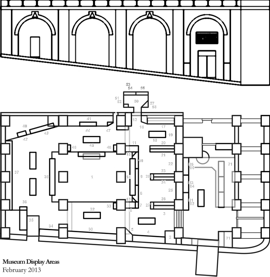The Wright Flyer (Corgi AA34503)
| Exhibit |
|---|
The Wright Flyer (Corgi AA34503) (i) (i)
|
 |
| location: |
|
Arch Two , Area 16 Aviation (display) |
| Shelf
4
2003 |
A very nice 1:32-scale model of the Wright Brothers' "Wright Flyer" aircraft with a satisfying fifteen-inch wingspan, produced by Corgi Classics in 2003 to commemorate the anniversary of the Wright Brothers' historic flight in 1903.
Modern models
Although we don't normally take in modern commercial models, this is such a nice and decently-sized piece, and goes so well with the rest of the Bleriot to Concorde cabinet on the history of flight that we couldn't resist it when it came in. Although we usually concentrate on toys and models made from on metal and other materials that predate modern plastics, the use of a semi-translucent plastic in this case for the fabric-covered wings of the original works really, really well, and the model has even had some good reviews from hardcore aero modellers who wouldn't normally dream of buying a commercial model (although they'd naturally be using it as a starting-point for further work).
2004 Corgi Toys promotional text
The Wright Flyer Orville & Wilbur Wright, Kitty Hawk, N. Carolina, 1903
- " On 17th December 1903 at Kill Devil Hill, near Kitty Hawk, N. Carolina, Wilbur and Orville Wright made history. At approximately 10:45 a.m. Orville Wright, supported by his brother Wilbur on the ground, became the first man in history to make a sustained, controlled, powered flight. The first flight lasted just 12 seconds, and covered a distance of one hundred and twenty feet. Its significance, however, was to change the course of history forever. Acclaim and financial success followed for the two brothers, who less than ten years before had set up their own bicycle business. Other pioneers in both the United states and England were inspired by their achievements and the development of aviation continued apace, eventually to become the massive aerospace industry that we know today. "


